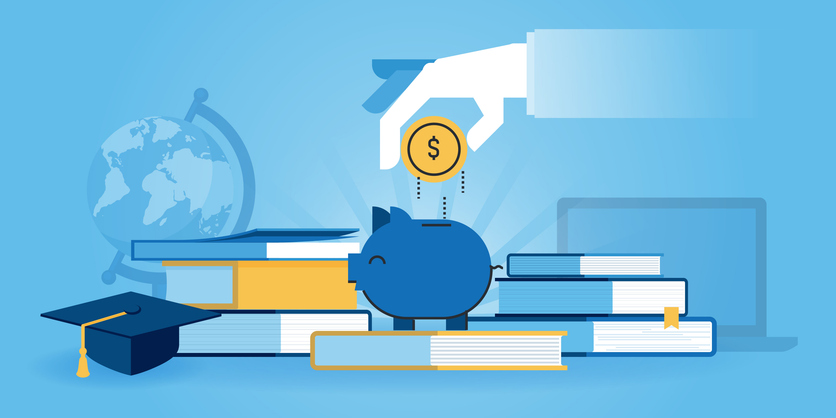Fostering Social and Emotional Learning in an Academic Setting
Social and Emotional Learning, or SEL, has been at the top of the list of priorities in schools and districts, especially since the pandemic. It has become increasingly clear that the social and emotional needs of our students are a critical component of their overall educational experience and that SEL is foundational to their academic success. In order to be successful, students need to learn the ability to regulate emotions, engage with peers in a healthy manner, and set meaningful goals.
What is SEL?
The Collaborative for Academic, Social, and Emotional Learning (CASEL) defines SEL as, “the process through which all young people and adults acquire and apply the knowledge, skills, and attitudes to develop healthy identities, manage emotions and achieve personal and collective goals, feel and show empathy for others, establish and maintain supportive relationships, and make responsible and caring decisions.” The goal is to provide students with the tools they need to cocreate healthy learning environments with the collaboration of schools and families.
The CASEL framework breaks down SEL into 5 key competencies, also known as the CASEL 5. These include self-awareness, self-management, social awareness, relationship skills, and responsible decision-making. We will take a closer look at each of these competencies and provide examples of implementation below.
Weaving SEL into Academics
Educators nationwide are trying to determine the best ways in which to incorporate SEL into academics and make it a foundational component of their school culture and teaching styles. Despite working to overcome the challenges of weaving SEL into their academics, educators overwhelmingly agree that it is necessary. An EdWeek survey from October 2022 found that “eighty-three percent of educators surveyed said it had a positive impact on students’ academic outcomes, and a slightly higher percentage—84 percent—said it improved their students’ ‘soft skills,’ such as communication, collaboration, and critical thinking.”
Teachers understand that building meaningful relationships with students is the cornerstone of student success and that by incorporating SEL into their teaching, they are also preparing their students with a wealth of skills that will extend far beyond the classroom.
What is needed, however, is support for teachers to make SEL a built-in component of their everyday teaching. Many teachers feel that they are expected to incorporate SEL without receiving the accompanying time and support necessary to do so. An important piece of this is providing adequate professional development surrounding SEL and making teachers’ needs a priority as well. We must create equal buy-in and meet the social and emotional needs of our educators first, so that they may also feel empowered to model these behaviors and skills to their students.
The Key Competencies of SEL
As mentioned above, the CASEL 5 describes five major interrelated competencies of SEL. These can be broken down into quantifiable domains of instruction for teachers to measure. Let’s take a look at each one.
Self-Awareness
This competency covers the skills students must learn to understand their own emotions, thoughts, and values, as well as how they influence their own behavior. This includes the ability to understand one’s strengths and weaknesses and form a strong sense of self-confidence and purpose. Some examples of self-awareness include integrating identity, being able to identify emotions, understanding one’s own values and purpose, and having a growth mindset.
Self-Management
Self-management describes one’s ability to manage their emotions, thoughts, and behaviors effectively in different situations and be able to achieve their goals. This encompasses goal setting and achievement, stress management, planning, organization, and motivation. Providing students with the tools necessary to learn these skills is imperative for their overall success.
Social Awareness
This competency governs what is needed to gain awareness and understanding of the perspectives of others, develop empathy, and learn to take an interest in different cultural backgrounds and contexts. Practices involving social awareness include developing and expressing gratitude, recognizing the strengths of others, and identifying social norms and situational demands.
Relationship Skills
The development of skills to establish and maintain meaningful and supportive relationships is critical to healthy social and emotional learning. In order to develop quality relationships, it is necessary to learn effective communication and problem-solving skills, demonstrate leadership, resolve conflict, collaborate with peers, and seek or offer help as needed.
Responsible Decision-Making
Responsible decision-making encompasses the ability to make constructive choices regarding personal behavior as well as social interactions in all kinds of diverse situations. This includes adeptness at demonstrating curiosity and open-mindedness, making reasoned judgments, understanding consequences, identifying solutions, and reflecting on one’s own role and influence within their community.
Supporting SEL with Progress Learning
While the Progress Learning platform is primarily geared towards supporting students in addressing their grade-level academic standards, we have also built meaningful ways in which teachers, students, and their families can incorporate SEL into the learning journey. Let’s take a look at how our tools and features foster the 5 key competencies of SEL for both elementary and secondary learners, as well as how our teachers feel about them.
Self-Awareness
Individualized Learning Plans for Elementary Students
All elementary students receive an Individualized Learning Plan in Progress Learning and Liftoff. Students are able to self-manage their own areas of strength as well as their learning challenges through our diagnostic assessments. They are able to recognize their strengths and reach even greater success mentally and emotionally by knowing which academic goals to specifically focus on.
Assignment Results Page for Secondary Students
The Results Screen empowers secondary students to take ownership of their learning and identify their academic challenges. Students can view all the activities they have completed and their scores. They are able to self-manage their own areas of strength as well as their learning challenges by viewing scores by domain and standard. If students are able to retry an assignment, they can view their original score next to their retry score. If the teacher allows for students to view questions and answers on the results page, students can analyze their results carefully to understand what items are correct or incorrect.
What teachers are saying:
“They have been so motivated to work on their lessons. I had one of my struggling students go home and work after school because he really wanted to reach his goal.” – D. Rosa, Dual Language Teacher
“Progress Learning is such an essential tool in ensuring that I meet the needs of all the different students in my classroom. The program provides pre-assessments that allow me to differentiate my instruction and my formative and summative assessment to ensure that all my students get the most from the lesson. The remediation tools are vital to ensuring my students who are struggling master the standards.” – D. Owens, Wilcox County High School
Self-Management
Star Progress for Elementary Students
All students are able to feel success and see their own growth no matter their learning level. Elementary students work to earn Galaxy Stars to show that they have fully mastered a standard. Progress Learning allows students to reinforce on-grade-level standards and work towards earning up to 3 Galaxy Stars for each standard per content area. Students earn 1 Galaxy Star for 70%, 2 Galaxy Stars for 80%, and 3 Galaxy Stars for 100%. In addition, our adaptive intervention program Liftoff finds the below-level skill gaps students are struggling with in math and reading. Students work to earn a Galaxy Star with at least 80% to show mastery of a standard.
The Study Plan with Dot Rank for Secondary Students
Within the Study Plan, secondary students are able to view their individual progress report. Here, students identify their areas of weakness using the colorful Dot Rank System. Students take control of their own progress by completing independent practice in those weak areas (indicated by pink and yellow dots) and working to earn green dots to show they have fully mastered a standard. They can also earn a gold star when they successfully complete all the independent practice for that standard.
What teachers are saying:
“Progress Learning gives me immediate feedback about what students understood and what I need to go back and reteach. It’s a simple way of assessing students’ growth.” – Michigan teacher
“As an ESL teacher, some of my language learners really struggled to find success and often felt very discouraged in their learning and progress. However, Liftoff allowed some of my students to feel success for the very first time. Students earned a Galaxy Star and saw that their goals were possible. Students then learned how to manage their emotions when they struggled with their practice, and began to feel encouraged as they earned Galaxy Stars.” – A. Turner, Texas Educator
Social Awareness
Alien Ranking Cards for Elementary Students
Our Alien Ranking Cards allow students to celebrate and encourage one another to be their best. As students grow and master standards, they unlock new Alien Ranking levels, which also unlock other fun and exciting rewards to boost their motivation and confidence. Many schools have creative bulletin boards to visually celebrate each student’s progress. Students are always very excited to cheer on their friends when they get to move their name up to a new level.
The Green Dot Challenge for Secondary Students
Broken down by standard, the Green Dot Challenge is a way for teachers to individualize a student’s learning. Through progress monitoring, teachers and students are able to identify achievable goals on an individual basis, which in turn contribute to the group goal. Our Green Dot Challenge helps students see progress made and aspire to reach new levels as a class and as a school. As students master their standards, it increases their engagement and motivation. The Green Dot Challenge fosters healthy competition and teamwork. It also makes learning fun!
What teachers are saying:
“We keep a chart in our classroom for students to keep up with their dot colors. It’s called the ‘Green Dot Challenge’ or ‘All Stars Challenge’ (depending on the class). The chart uses a number assigned to each student, so they only know which one is theirs. This is great for accountability and students love showing off their dots when they move up from red to yellow, yellow to green, or earn a star!” – Georgia middle school teacher
“Whenever a student moves up a level, he or she is allowed to present the screen video to the whole class (without us knowing) like a commercial. Everyone gets so excited for that student, and they can’t wait to level up and share their own great news with their classmates.” – N. Tepsick, 3rd Grade Teacher
Relationship Skills
Student/Teacher Chat for All Grade Levels
Every day, teachers play an important role in the relationships they build with students. Our teacher chat and video messaging features make this possible. Teachers can connect one-on-one with each of their students in complete confidentiality to check on the student’s social-emotional well-being each day. As teachers send assignments and assessments to students, they are able to send a typed message of encouragement or praise that the students will receive before they begin the assignment. If enabled, students may reply to the teacher and check in when they need support, help, or encouragement.
What teachers are saying:
“I’m so proud of all of my students these last few weeks. An example today: A student notified me via the chat they had a problem with a question, created a Google Doc, and shared it with me to help them. Amazing! These @BeaverMST_Stars are rocking online learning!” – C. Spurlock, 4th Grade Math and Science Teacher
Responsible Decision-Making
Embedded Games for Elementary Students
Our games help elementary students develop their skills to make constructive choices in their learning. After they answer a question correctly, students are able to celebrate their success by playing a fun 20-second game as a reward. They can also track their progress and work towards earning more Galaxy Stars. Galaxy Stars allow students to unlock other engaging features like more games, blasters and rockets for their games, and higher Alien Ranking Cards. Students have the opportunity to problem-solve and do their best on the first attempt when answering questions.
Independent Practice for Secondary Students
When secondary students are given independent practice time on the Progress Learning platform, they are able to demonstrate responsible decision-making. Within Progress Learning, students have access to the Study Plan, Assignments/Assessments, as well as Graded Work which includes remediation assignments. Students are able to identify what key areas and standards they need to reinforce and master, and then select what practice they need to complete to be successful.
What teachers are saying:
“Third grade loves to review and learn with Progress Learning.” – P. Libreros, Instructional Coach
“Progress Learning changed how I teach because it is standard-specific and uses the same language as our state testing.” – L. Menz, Wilkinson Junior High School
Progress Learning instills confidence and promotes relationships skills that are essential to the development and growth of the whole individual. Through Progress Learning, every student has the opportunity to progress in their individual strengths and find success in their learning.
Request a demo to see how we can support your students’ social and emotional learning.


